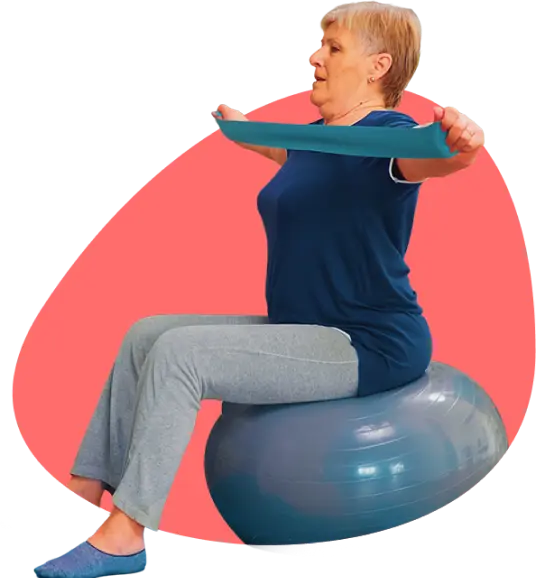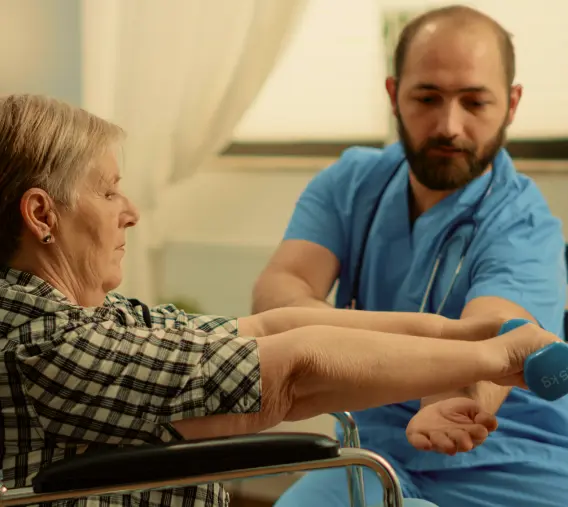Pelvic Health Physio
Our Women’s Health Physio’s Are Trained To Deal With Many Women’s Health Issues Including:
- Incontinence
- Pelvic organ prolapse
- Pelvic floor weakness
- Chronic pelvic and sexual pain
- Pregnancy and post natal physio
- Bowel and defecation issues
- Pre and post surgery rehabilitation

Women’s Pelvic Health Issues
Incontinence
Did you know that Women’s Health Physios are able to treat many different type of incontinence!! Incontinence can be a scary and very debilitating issue that many women are faced with. Most women think that you just have to live with it. This is certainly NOT the case. In most cases Incontinence can be treated without the need for medical intervention (surgery and medication).
Womens Health Physios are able to assess and diagnose the type of incontinence you may be suffering with and form a treatment plan to help to address the issues.
Most people don’t realise that there are many different types of Incontinence including Stress Urinary Incontinence, Urge Urinary Incontinence and Mixed Incontinence (combination of Stress and Urge).
Stress Urinary Incontinence: Leaking of urine associated with activities that involve an increase in intraabdominal pressure pushing down on your pelvic floor. Activities include: running, jumping, laughing, sneezing, and coughing. In women this is usually caused by pregnancy, childbirth and menopause.
During pregnancy and childbirth the muscles and fascia of the pelvic floor are stretched and weakened causing your Stress Incontinence. During menopause a huge hormonal change occurs – Oestrogen reduces significantly. One of the roles of Oestrogen is to help to maintain the thickness and health of the urethra (bladder outlet tube). With a reduction of Oestrogen there is thinning of the urethra and consequently many women experience Stress Incontinence.
Urgency and Urge Incontinence: Involves a strong and sudden need to go to the toilet associated with leakage of urine. Very commonly caused by an overactive bladder muscle. You will get the feeling that you won’t be able to make it to the toilet in time and sometimes you will leak a little.
By having an assessment of your bladder function and pelvic floor strength, Women’s Health Physio’s are able to identify factors that are contributing to your incontinence and formulate a treatment plan to address these factors. Incontinence is not something you need to just live with. There is so much that can be done to help you.

Pelvic Organ Prolapse
This means a slipping of the pelvic organs. Pelvic organs include: Bladder, Uterus and Rectum. This is a huge problem in Australia. It is estimated that approximately 75% of women will develop some degree of pelvic organ prolapse during their life. AND approximately 1 in 5 women will have surgery for this prolapse. There is an increased risk of developing Pelvic Organ Prolapse with any weakness or damage to the Pelvic Floor muscles. Especially:
- Any women who has given birth
- Any women who has a history of chronic respiratory Conditions
- Any women who has a history of chronic constipation
- Any women who has a history of regular heavy lifting
- Any women who has been an elite or high level athlete
Common symptoms include:
- Vaginal Bulge
- Pelvic Pressure
- Low Back Ache
- Splinting / Digitation
- Bleeding, discharge, infection
Physiotherapy Management of Pelvic Organ Prolapse
- Increase Support
- Strengthen Pelvic Floor Muscles
- Teach “The Knack”
- Provide vaginal support
- Techniques to reduce strain down through organs and fascia
- Provide advice and tips on how to manage the symptoms
If you are experiencing any of these symptoms and would like some help please don’t hesitate to make an appointment with Sarah.
Pelvic Floor Weakness
There are many causes of Pelvic Floor Weakness including pregnancy and childbirth, chronic constipation, chronic respiratory condition and pelvic surgery. The great thing is that the Pelvic Floor muscles are just that muscles!!! Most of the time we are able to rehabilitate them with an individualised program of exercises. Sarah is able to assess the function of your pelvic floor muscles and tailor a treatment plan specific to you. If you feel your Pelvic Floor isn’t as strong as it once was call us and book an appointment with Sarah.

Chronic Pelvic Or Sexual Pain
Chronic Pelvic or Sexual pain can significant effect the lives of people who suffer from this. 1 in 5 Women experience it. BUT people often feel so isolated by it and are extremely distressed.
People often Report the following symptoms
- Unable to insert a tampon
- Painful sex
- Painful papsmear
- Painful bladder
- Pelvic muscle spams or pain
- Significantly painful periods
Conditions that can Cause Chronic Pelvic or Sexual Pain:
- Vulvadynia
- Vaginismus
- Endometriosis
- Over training of the pelvic floor or core muscles
- Reoccurring infections i.e thrush
If you are experiencing any of these symptoms and would like some help please don’t hesitate to make an appointment with Sarah.
Bowel And Defecation Disorders
Issues with our bowels can be frightening and distressing. Be reassured that there is so much that we can do to help you.
People often Report the following symptoms
- Inability to stop wind
- Feacal Incontinence
- Constipation and straining to empty your bowels
Possible Causes:
- Pregnancy and childbirth
- Dietary issues
- Poor fluid intake
- Lifestyle factors
- Poor pelvic floor muscle strength
- Lots of heavy lifting
- Menopaus
If you are experiencing any of these symptoms and would like some help please don’t hesitate to make an appointment with Sarah.
Pre And Post Pelvic Surgery Rehabilitation
Our goal here is to ensure that you get the best possible result from your Pelvic surgery.
Ensuring that you look after yourself properly is paramount in ensuring that the surgery is a success. Avoiding all activities that result in a increase in the pressure within your abdomen is essential – these activities include lifting heavy objects, straining when you go to the toilet, physical exercises like sit ups, unnecessary coughing and sneezing
Once you are ready we will start you on a pelvic floor muscle strengthening program. This will involve individualised and targeted approach to your rehabilitation. We will also teach you how to coordinate your pelvic floor muscles. This essentially means we teach you when your muscles should be switched on and when they should be switched off. We will then progress you to functional rehabilitation to ensure that your pelvic floor muscles will be working when you are performing all of your normal daily activities.
If you are about to have pelvic surgery or have recently had pelvic surgery and would like help with your recovery please call to make an appointment with Sarah.
We Also Treat Many Pregnant And Post-natal Women
Please see our pregnancy and post-natal page for more information
Rehabilitate, Educate, Innovate.
Providing excellence in physiotherapy from assessment to diagnosis, treatment and rehabilitation